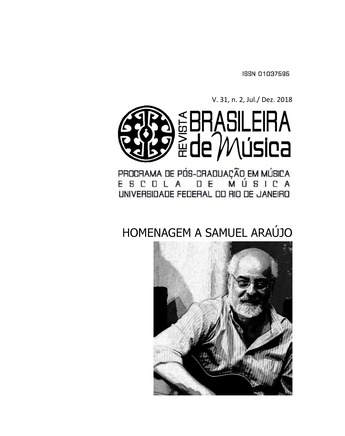Luiz Heitor Corrêa de Azevedo and the Musical Pan-Americanism (1939-1947)

Abstract
This article seeks to shed new light on the role of Luiz Heitor Corrêa de Azevedo as a pioneer intellectual in Brazilian ethnomusicology, with emphasis on his role as an intermediary between American and Brazilian institutions and musicologists between the years of 1939 and 1947. Recognized as one of the most important Brazilian musicologists of the twentieth century, Azevedo is most often remembered for his international relevance as Secretary of the UNESCO Section of Music in Paris, a position he held from 1947 to 1965. This article focuses on a different, crucial dimension of the musicologist’s work that has received little scholarly attention: his active role as an intellectual linked to the “Brazilian musical folklore” movement of the 1930s and ‘40s. I highlight the degree of internationalization Azevedo achieved through agreements and academic exchanges with American intellectuals and institutions such as Charles Seeger, Alan Lomax, Carleton Sprague Smith and the Library of Congress.Keywords
Panamericanism. Ethnomusicology. Folkore. Cultural relations. Luiz Heitor Corrêa de Azevedo.
Downloads
Download data is not yet available.